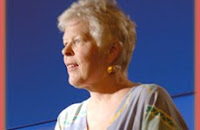Feb. 28, 2010
In John Spencer's post, he commented on Twitter. His thoughts on Twitter ranged so much so that he just put five of them on the post. The first thought was that we don't know who is actually looking at our tweets. The second thought was that people do share some useful information on Twitter. The third thought was that there is so many people on Twitter that it sometimes feels like chaos in a crowded room. The fourth thought was you can never predict what will go viral. The fifth thought was that Twitter is much more collective in nature than Facebook.
My comment was "Hey I am a student in Edm310 class at the University of South Alabama. I was assigned your blog to leave comments for the next three weeks. I agree with you on your thoughts of Twitter. I had to get Twitter, and I am still learning how to use it. I wish I could tell if people are actually looking at my post, but I guess I will never know. I do believe that sometimes you can get good information, but I have a hard time reading Twitter long enough to find this information."
The second comment4teachers
March 2

In his second post, he mentioned that he brought up the question "What is one item of technology that the world would be better off without?" Some students had a hard time answering the question. One boy mentioned "nuclear power." He explained by saying, "We found something so small, we can't even see it and then we use it to destroy people in seconds." Then another kid piped in and said "that it powers our city." Another student said "I think television is the worst, because it makes people lazy and unable to think." Then another response came in and was "I think the microwave is the worst. No one cooks anymore. Everything we eat is fast, but it sucks. Nothing tastes right." One student says, "The world would be best without cell phones. No one talks anymore. Go to a bus stop. Who is talking? No one. They are all texting instead. We're becoming cyborgs." Then another response, "Cell phones connect and cars divide. It's why computers are better than TV's." The students agreed with the connecting and dividing of items. They even thought of some more examples. Then Mr. Spencer stated "I know this might shock you, but I don't own a cell phone because I think it's a trap. I think it's a web that people think will connect them and then people build their own cocoon of isolation. I think that's a trick of technology. It sometimes promises to connect you and really it is dividing you. It's why I only watch one or two TV shows a week. I need to connect with the shared pop culture, but I know that too much of it will leave me isolated and I'll miss my family." A student responds, "What if it's both? What if all technology divides and connects? Take writing. When you write on paper, you aren't really talking to anyone. You can end up alone. Maybe you need some alone time, maybe you don't. Maybe you need to send a letter to someone, and it becomes something that connects you. Maybe you write a book, and people share thoughts through long chapters. Or a car. We can say it divides us, but I would never see my Abuelita if we didn't have a car."
My comment was "This post really made me think. I really don't know what type of technology we would be better without. I am going to have to think on that. I agree on some of the topics that the kids brought up. I am a fitness instructor, and I believe people should get out more instead of chilling behind a computer or TV. I do see that things can both divide me and connect me. We now need to think which one is being done more-are we connecting more with that technology or dividing more; it all depends on the person and family. In some families, the TV might connect because they all come together to watch the show, and in other families it divides because everybody goes to a different TV to watch the show that they want to watch.
The third Comment4teachers
March 14
The third post I read and commented was "on a few conversations from my son"
Joel says, "I want my compass to talk."
"It's impossible."
"But you said it tells you where to go, daddy."
"What I meant is that you can read it."
"But I need it to talk to me in case I'm lost in the forest."
"Joel, if you're ever in the forest, you know who will be with you?"
Micah, from across the hall, "God!"
"That too. But I'll be with you."
* * *
"Are you putting all the darts on the glass door?"
"That's impossible to put all the darts."
"I'm sorry. Most of the darts."
"Yeah, you were exaggerating. I couldn't put all of the darts, there's like a hundred billion of them."
* * *
Micah is playing with the dinosaurs:
Kid Dinosaur says, "Show me how to jump off the couch."
Daddy Dinosaur answers,"How about you try on your own and if you still need my help, I'll help you."
Kid Dinosaur jumps and says, "I didn't need your help, but thanks for watching."
My comment to this was "This is Brittany from University of South Alabama. I really enjoyed reading this blog. I could see kids actually saying that. I wish I had items that talk to me as well, but I know it can't happen. One thing I would love to be able to talk to would be my boyfriend's dog. He is a hyperactive dog, and I would like to see what he was thinking. Then the last sample of the dinosaurs sounds like me. "Please show me how to do something, and then when I do I thank them for watching."









